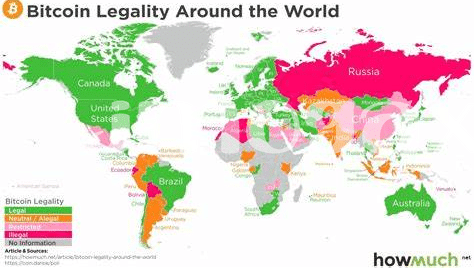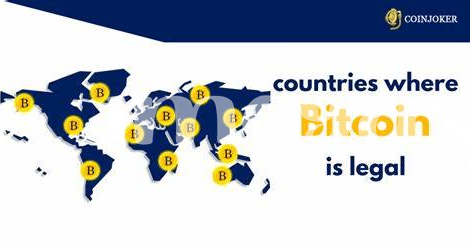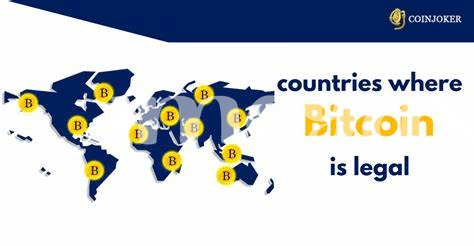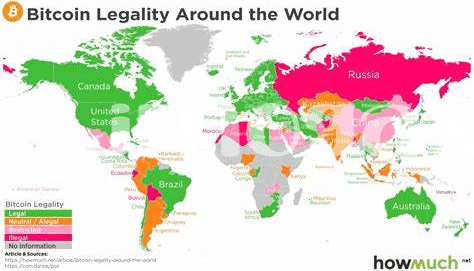Current Legal Status of Bitcoin in Laos 📜

Despite being a relatively new concept in Laos, the legal status of Bitcoin holds significant interest within the country. The current approach towards Bitcoin in Laos is characterized by a lack of specific regulations addressing its use and status. This ambiguity creates a challenging environment for individuals and businesses seeking to engage with cryptocurrencies within the country. The absence of clear guidelines raises questions about the legality and protection afforded to users and investors in the Bitcoin space. As Laos navigates this evolving landscape, there is a growing need for regulatory clarity to streamline operations and provide a framework for the lawful use of Bitcoin within its borders.
As Laos continues to examine the legal implications of Bitcoin, stakeholders within the country are presented with an opportunity to shape the future of digital assets. This period of uncertainty highlights the importance of establishing a comprehensive legal framework that not only addresses potential risks but also embraces the innovative possibilities offered by cryptocurrencies. The evolving legal status of Bitcoin in Laos prompts a critical discussion on the balance between regulatory oversight and fostering a conducive environment for digital financial solutions to thrive.
Potential Economic Impact of Bitcoin Legalization 💰
Bitcoin’s legalization in Laos could usher in a new era of financial opportunities for both the government and its citizens. With increased acceptance, bitcoin could potentially stimulate economic growth, attract foreign investments, and foster entrepreneurship. The decentralized nature of bitcoin presents a unique chance for Laos to modernize its financial infrastructure and promote financial inclusion among its unbanked population. By leveraging the advantages of digital currencies, Laos may pave the way for a more efficient and transparent financial ecosystem, positioning itself as a progressive player in the global economy.
Regulatory Challenges Faced by Laos Government 🛑

The regulatory landscape in Laos presents a complex set of challenges for the government in considering the legalization of Bitcoin. One of the key issues faced by authorities revolves around the need to establish clear guidelines for financial institutions and individuals engaging with cryptocurrencies. Additionally, ensuring compliance with anti-money laundering and counter-terrorism financing regulations poses a significant hurdle as the decentralized nature of Bitcoin transactions complicates traditional oversight mechanisms. Moreover, the lack of established frameworks for taxation and consumer protection further compounds the regulatory challenges faced by the Laos government. Addressing these obstacles will be crucial in shaping a sustainable and secure environment for the adoption of Bitcoin in the country.
Opportunities for Innovation and Financial Inclusion 🌐

Opportunities for Innovation and Financial Inclusion in Laos can pave the way for a more inclusive economy that benefits a wider range of individuals. By embracing Bitcoin legalization, Laos has the potential to foster innovation in financial services, opening up new avenues for entrepreneurs and businesses. This can lead to greater access to banking services and digital financial tools for unbanked populations, ultimately promoting financial inclusion and economic growth in the country. Additionally, integrating Bitcoin into the legal framework can attract foreign investment and stimulate local entrepreneurship, driving forward Laos’ position in the global economy. Learn more about the legal aspects of Bitcoin in countries like Kiribati and Kenya on is bitcoin recognized as legal tender in kenya?.
Public Perception and Acceptance of Bitcoin 💭
– International Comparisons and Lessons Learned 🌍
Public perception and acceptance of Bitcoin play a critical role in the potential mainstream adoption of this digital currency. Understanding how people in Laos view Bitcoin can provide valuable insights into the factors influencing its integration into the local economy. By examining public attitudes towards Bitcoin, policymakers can better gauge the level of readiness for its widespread use within the country. This information can also help in shaping education and awareness campaigns to address any misconceptions or concerns that may exist among the general population.
International Comparisons and Lessons Learned 🌍

When looking at international comparisons in the realm of Bitcoin legalization, a key takeaway emerges: different countries are adopting various approaches to regulate and integrate cryptocurrencies into their economies. For example, some nations like Japan have established clear legal frameworks for Bitcoin, recognizing it as a form of payment. On the other hand, countries like China have taken a more restrictive stance, implementing bans on certain aspects of cryptocurrency trading. These diverse approaches offer valuable insights for countries like Laos seeking to navigate the complexities of Bitcoin legalization.
In understanding lessons learned from other nations, Laos can assess the regulatory successes and pitfalls encountered by early adopters of Bitcoin. By studying these international examples, Laos can tailor its approach to effectively balance innovation with regulatory oversight, ultimately shaping a sustainable and inclusive financial landscape. This nuanced analysis of global experiences sheds light on the multifaceted nature of Bitcoin legalization, guiding policymakers towards informed decisions for the future of digital currency in Laos.
